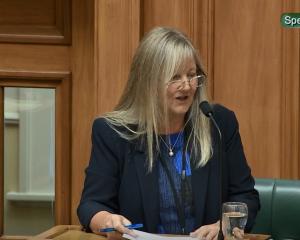Prince William and wife Catherine, both 30, were forced to make an early announcement that they are expecting a baby after an acute case of morning sickness landed the Duchess of Cambridge in hospital on Monday.
Royal aides said Catherine is in the "very early stages" of pregnancy, believed to be well short of 12 weeks, and is likely to remain in hospital for several days to rest and receive supplementary hydration and nutrients.
While tabloids speculate on the baby's sex, New Zealand's politicians have work to do to ensure that either way, the baby can one day rule Britain and the Commonwealth.
Under 300-year-old succession laws, the eldest son of the monarch becomes king, and the eldest daughter takes the throne only if the monarch has no sons.
The 16 Commonwealth realms, including the United Kingdom, New Zealand and Australia, agreed to change the "sexist" succession laws at a meeting in October last year. British politicians still need to amend key constitutional documents - although the changes will be backdated to last October.
Most of the realms will also need to pass legislation to finalise the changes.
New Zealand led the push to change the laws, and is helping to co-ordinate their implementation among the realms, which also include Canada and states in the Caribbean, West Indies and Pacific.
New Zealand is the only realm aside from the United Kingdom to include succession laws in its domestic laws, and will need to amend the Constitution Act 1986 and Imperial Laws Application Act 1988.
The realms have also proposed to scrap a rule stopping anyone married to a Roman Catholic from succeeding to the crown, and repeal a law that requires all descendants of King George II, who reigned from 1727 to 1760, to obtain the sovereign's permission before marrying, otherwise their marriages are not legal.
The realms are proposing to replace that law with a requirement that the first six people in line to the throne at any time must obtain the sovereign's permission to marry.
If they fail to do so, their marriage will still be legal but they will be unable to succeed to the throne.












